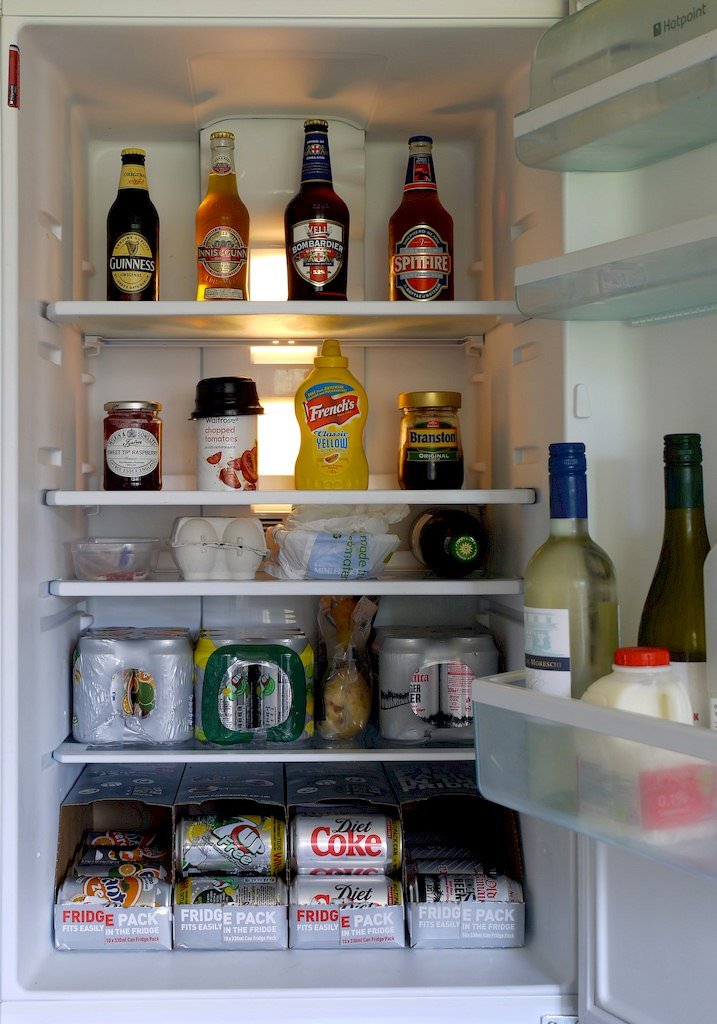Table of Contents Show
Yes, the Coronavirus COVID-19 is able to survive for a couple of days in the refrigerator. So – is it important to clean every item when you return from the grocery store?
The appropriate response is no; the most significant thing is washing your hands cautiously when you return home.
With the Coronavirus going to hit 1.5 million positive cases everywhere throughout the world, specialists and researchers proceed to learn and make sense of increasingly more about the structure and qualities of the virus.

Read Also:
- COVID-19 Protection: Glass Sneeze Guard for Counters of Hospitals and Medical Stores
- DIY Fridge Repair: Here Is How You Can Fix 5 Common Refrigerator Problems
- How to Keep Yourself Busy in the Kitchen During the Coronavirus Outbreak
- How to Renovate Your Bathroom During Coronavirus Times
- Your Ultimate Refrigerator Buying Guide
To What Extent Does the Coronavirus Get By on Surfaces?
An investigation distributed in the New England Journal of Medicine assessed to what extent coronavirus can get by on certain surfaces.
On plastic surfaces, it can endure the longest, however following 7 hours, its irresistible limit is sliced down to half, and after 72 hours, it ceases to exist.
On steel, its endurance rate is split in 6 hours, and in 48 hours, it exits.
On cardboard, it takes 5 hours to split its endurance rate and 24 hours until it dies; on copper, 2 hours to slice endurance down to half and 4 hours until it’s no longer a risk, at this point a hazard.
In spite of the fact that examination has broken down the endurance of the infection at room temperature, there is no explanation that something other than what’s expected would happen in the fridge as per specialists.
Tips to Clean the Surface:
In the event that a surface is noticeably grimy, clean it with cleanser and water first, at that point utilize a disinfectant.
Wear expendable gloves.
Ensure you have great ventilation in the region where you are cleaning.
Utilize a weakened family unit blanch arrangement or a liquor based arrangement within any event 70% liquor. The Environmental Protection Agency has a rundown of cleaning items that meet its rules for use against the 2019 novel coronavirus.
Adhere to directions on the cleaning item’s mark, and check to ensure it doesn’t lapse.
Wash your hands when you’re done.
Impact of Sanitizer
In the study, scientists said that the use of (1) 80% ethanol, 0.725% glycerol, and 0.125% hydrogen peroxide; and (2) 75% 2-propanol, 0.725% glycerol, and 0.125% hydrogen peroxide will make the best sanitizer to protect yourself from coronavirus.
The Swiss and German researchers also tested dilutions of alcohol ethanol and 2-propanol. Now, it is the active ingredient of hand sanitizers on the market.
An investigation distributed as of late in the Journal of Infectious Diseases found that alcohol-based sanitizer successfully fights with another sort of coronavirus.
The World Health Organization (WHO) as of late took to online networking to share counsel on the best way to ensure yourself in the midst of the coronavirus.
Its medical staff put hand sanitizer use on the highest priority.
“A significant part of the time spent in cleaning your hands by using a liquor based hand rub thing like a gel, or washing your hands with soap and water,” says Benedetta Allegranzi, specialized lead of disease avoidance and control for WHO in a video distributed on TikTok.
The Centers for Disease Control and Prevention (CDC) has a hand-washing page on its site, where it suggests the utilization of hand sanitizers included in any event 60% alcohol.
“Various studies have found that sanitizers with an alcohol focus between 60 – 95% are more impressive at taking out germs than those with a lower alcohol obsession or non-alcohol based hand sanitizers,” the CDC says.
Hand sanitizers without 60-95% alcohol may not work similarly well for some sorts of germs. Simply diminish the development of germs instead of executing them inside and out.
The CDC reports that hand sanitizer is insufficient if not utilized appropriately.
Studies have discovered that individuals frequently don’t utilize enough and regularly clear it off before it totally dries.
When utilizing hand sanitizer, apply the item to the palm of one hand (read the mark to become familiar with the right sum) and rub it everywhere throughout the surfaces of your hands.
Despite the fact that cleanser and water are progressively compelling at expelling oil, earth, and pesticides, the CDC embraces the utilization of alcohol-based hand sanitizers for the expulsion of germs, viral, and bacterial.
In emergency clinic settings, they work especially well, the CDC says, since hands interact with germs there, however, they aren’t normally vigorously filthy or oily.
Yet, the most pertinent and significant outcome from examinations performed up until now?
There is nonetheless, no examinations performed have shown that you can get tainted with coronavirus just by contacting a surface; regardless of whether the infection is identified, it doesn’t really infect an individual (in the event that you continue to contact your mouth, eyes or nose with “defiled” hands, for instance).
Consequently, it isn’t important to utilize liquor or hydrogen peroxide on your supermarket buys, affirms virologist Fabrizio Pregliasco of the Università Statale of Milan to the Italian paper “Corriere Della Sera.”
He clarifies further: “On the off chance that I ought to have the adversity of having things that somebody has potentially hacked on, similar principles apply – as they would for any surface: I shouldn’t contact my mouth and I should wash my hands frequently. I don’t believe it’s important to sterilize the bundling or the plastic pack.”
The Coronavirus is effectively transmitted from human-to-human, thus far, there haven’t been any recorded instances of disease happening through items.
In addition, we shouldn’t fear to ingest the infection; regardless of whether we ingest polluted food, this would not be sufficient to taint us.
The standard that consistently applies? Wash your hands before beginning to cook, before eating and considerably in the wake of gathering the dishes.
At the point when we don’t know whether our hands are spotless, we should be mindful so as not to contact our countenances.
The debate gains momentum with reports talking about Corona’s survival on different surfaces. We have seen the nature of the SARS virus in the past which is akin to the Coronavirus.
But it goes without saying that the virus is sticky in nature.
The quest for the magical cure is on. For the time being, as the situation signals, the safest bet is to decontaminate anything finding its way to the refrigerator.
Author Bio:
Mayank Nagpal is a blogger, he likes to read and write about home improvement and commercial appliance repair. He is working for AllpreciseHVAC refrigeration Chicago.









